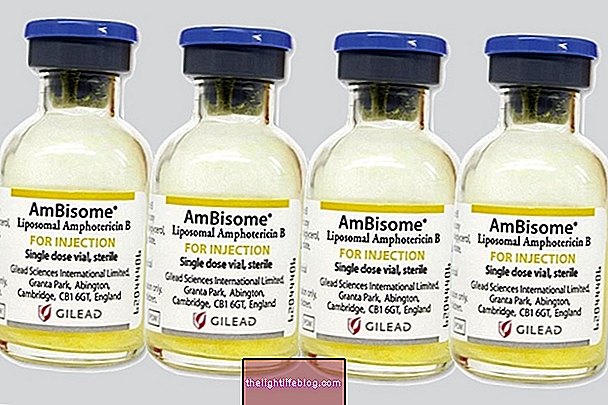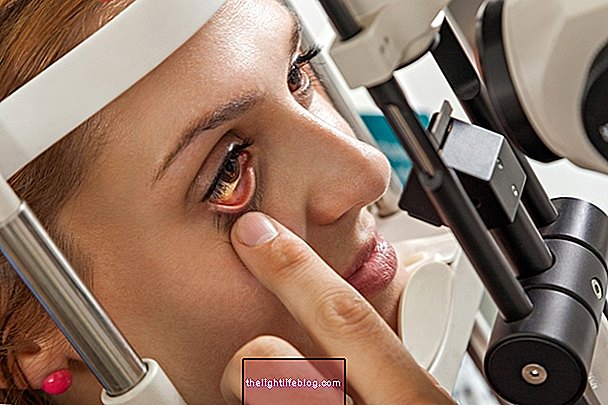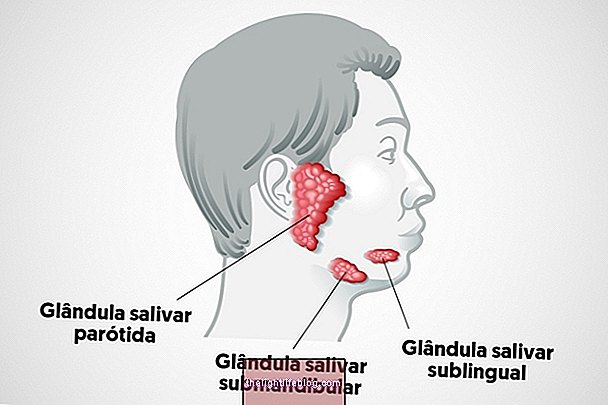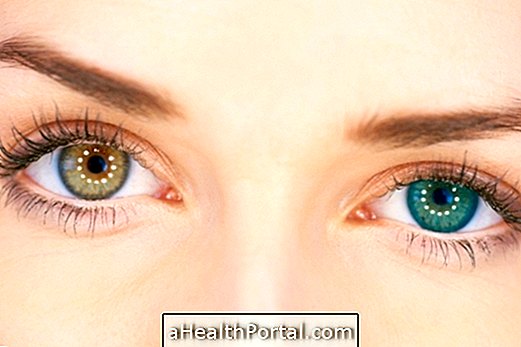Hydrogen peroxide, known as hydrogen peroxide, is an antiseptic and disinfectant for local use and can be used to clean wounds. However, its range of action is reduced.
This substance works by slowly releasing oxygen into the wound, killing bacteria and other microorganisms present at the site. Its action is fast and, if used correctly, it is neither corrosive nor toxic.
The hydrogen peroxide is for external use only and can be found in supermarkets and pharmacies.
-o-que--e-para-que-serve.jpg)
What is it for
Hydrogen peroxide is an antiseptic and disinfectant, which can be used in the following situations:
- Wound cleaning, at a concentration of 6%;
- Disinfection of hands, skin and mucous membranes, in combination with other antiseptics;
- Nozzle wash in case of acute stomatitis, at a concentration of 1.5%;
- Disinfection of contact lenses, at a concentration of 3%;
- Wax removal, when used in ear drops;
- Disinfection of surfaces.
However, it is important that the person knows that this substance does not act against all microorganisms, and may not be sufficiently effective in certain situations. See other antiseptics and know what they are for and how they should be used.
Caring for
The hydrogen peroxide is very unstable and therefore it must be kept tightly closed and protected from light.
The solution should be applied carefully, avoiding the eye area, as it can cause serious injuries. If this happens, wash with plenty of water and go to the doctor immediately.
In addition, hydrogen peroxide should not be ingested, as it is for external use only. In case of accidental ingestion, you must immediately go to the emergency department.
Possible side effects
Hydrogen peroxide should be used with caution, as it can cause irritation if it comes in contact with the eyes and if it is inhaled, which can cause irritation in the nose and throat. It can cause tingling and temporary whitening of the skin and, if not removed, can cause redness and blisters. In addition, if the solution is too concentrated, it can cause burns on the mucous membranes.
The hydrogen peroxide is for external use only. If ingested it can cause headache, dizziness, vomiting, diarrhea, tremors, convulsions, pulmonary edema and shock.
Who should not use
Hydrogen peroxide should not be used by people who are hypersensitive to hydrogen peroxide and should not be applied to closed cavities, abscesses or regions where oxygen cannot be released.
In addition, it should also not be used by pregnant or lactating women, without medical advice.
Was this information helpful?
Yes No
Your opinion is important! Write here how we can improve our text:
Any questions? Click here to be answered.
Email in which you want to receive a reply:
Check the confirmation email we sent you.
Your name:
Reason for visit:
--- Choose your reason --- DiseaseLive betterHelp another personGain knowledge
Are you a health professional?
NoMedicalPharmaceuticalsNurseNutritionistBiomedicalPhysiotherapistBeauticianOther
Bibliography
- ELECTRONIC SCIENTIFIC JOURNAL OF VETERINARY MEDICINE. DISINFECTANTS, EFFECTIVENESS AND COST . 2009. Available at:. Accessed on 12 May 2020
- REGIONAL CENTER FOR PUBLIC HEALTH IN THE CENTER. GUIDANCE PROTOCOL ON THE USE OF ANTI-SEPTICS, DISINFECTANTS AND CLEANING PRODUCTS . 2006. Available at:. Accessed on 12 May 2020
- Reis, Lúcia Margarete et. al .. Evaluation of antimicrobial activity of antiseptics and disinfectants used in a public health service. Brazilian Journal of Nursing. Vol.64. 5.ed; 870-875, 2011
- UFTM. Manual of standardized antiseptics. 2011. Available at:. Accessed on Mar 13, 2020
- Omidbakhsh N. et. al .. Broad-spectrum microbicidal activity, toxicologic assessment, and materials compatibility of a new generation of accelerated hydrogen peroxide-based environmental surface disinfectant.. Am J Infect Control .. Vol.34. 5.ed; 251-157, 2006


-o-que--e-para-que-serve.jpg)























